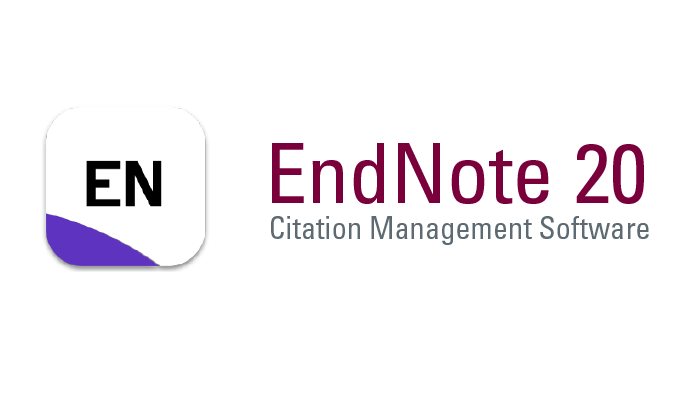MANAJEMEN KOLABORASI ANTARA GURU DENGAN PESERTA DIDIK PADA KEGIATAN BELAJAR MENGAJAR ERA NEW NORMAL DI SMP NEGERI 1 LHOKSUKON ACEH UTARA
DOI:
https://doi.org/10.47887/amd.v3i2.93Keywords:
Management,, Collaboration,, Teacher,, Learners,, Learning,, Teaching.Abstract
This study aims to find out how collaborative management between teachers and students in teaching and learning activities in the New Normal Era so that teaching activities run effectively. This research is located at SMP Negeri 1 Lhoksukon North Aceh which is a field study with a descriptive qualitative approach. The data source consists of primary and secondary data. Data collection techniques use observation, interviews and documentation. Data analysis is carried out by means of data reduction, data presentation and drawing conclusions on the data that has been collected. Meanwhile, to ensure the validity of the data, triangulation techniques are used with theory. The results of this study show that SMP Negeri 1 Lhoksukon North Aceh applies collaborative management in teaching and learning activities in this New Normal era by paying attention to several elements, including: First, the planning carried out in the New Normal Era was very different before the pandemic, the planning applied was that there must be a stable internet connection, short materials and self-study modules as well as the existence of a zoom application or google classroom. Second, the implementation must be in accordance with what has been planned at the initial stage as well as the participation of the learners themselves. Third, the assessment / evaluation used by SMP Negeri 1 Lhoksukon North Aceh is almost the same as before, namely the assessment at the beginning of learning and at the end of learning as well as the existence of daily tests and semester tests.
References
Arifin. Zainal. (2012), Evaluasi Pembelajaran, Bandung: PT Remaja Rosdakarya.
Abdulsyani. (1994). Sosiologi Skematika, Teori, dan Terapan. Jakarta: Bumi Aksara.
Bilfaqih, Yusuf & Qamarudin, M.Nur. (2015), Esensi Penyusunan Materi Pembelajaran Daring, Yokyakarta: Deepublish.
Desmita, (2012), Psikologi Perkembangan Peserta Didik. Bandung: Remaja Rosdakarya.
Malayu, Hasibuan. (2004), Dasar-dasar perbankan, Jakarta: Bumi Aksara.
Majid. Abdul (2009), Perencanaan Pembelajaran Mengembangkan Standar Kompetensi Guru, Bandung, PT RemajaRosdakarya.
Moleong, Lexy J. (2007), Metodologi Penelitian Kualitatif, Bandung: Remaja Rosdakarya,
Pratiwi, I. A. (2015). Pengembangan Model Kolaborasi Jigsaw Role Playing Sebagai Upaya Peningkatan Kemampuan Bekerjasama Siswa Kelas V Sd Pada Pelajaran Ips. Jurnal Konseling Gusjigang, 1(2),107630.
Purmadi, A, Hadi, M.S.& Najwa, L. (2018). Pengembangan Kelas Daring dengan penerapan Hibryd Learning menggunakan Chamilo pada matakuliah Kewarganegaraan. Edcomted: Jurnal Kajian Teknologi Pendidikan. 3 (2)
Roestiyah N.K. (2001), Masalah-masalah Ilmu Keguruan. Jakarta: Bina Aksara.
Rusman. (2010), Model-Model Pembelajaran Mengembangkan Profesionalisme Guru, Jakarta: Rineka Cipta.
Sudarsiman, S. (2015). Memahami Hakikat dan Karakteristik Pembelajaran Biologi dalam Upaya Menawab tantangan Abad 21 Serta Optimalisasi Implementasi Kurikulum 2013. Jurnal Florea. 2(1).
Sugiyanto. (2009). Model-Model Pembelajaran Inovatif. Surakarta: Panitia Sertifikasi Guru (PSG) Rayon 13
Satori, Djam’an, dkk. (2011), Metode Penelitian Kualitatif, Bandung: Alfabeta.
Supriyadi. (2011), Strategi Belajar Mengajar, Yogyakarta: Cakrawala Ilmu.
Sugiyono. (2009), Metode Penelitian Kualitatif dan R&D, Bandung: Alfabeta.
WHO. (2020), Coronavirus disease 2019 (COVID-19) situation report-94.WHO
Yulianti, H., Iwan, C. D., & Millah, S. (2018). Penerapan Metode Giving Question And Getting Answer Untuk Meningkatkan Hasil Belajar Peserta Didik Pada Mata Pelajaran Pendidikan Agama Islam, Jurnal Penelitian Pendidikan Islam,[SL], 6(2).
Downloads
Published
How to Cite
Issue
Section
License
Copyright (c) 2022 Suci Wahyuni

This work is licensed under a Creative Commons Attribution-ShareAlike 4.0 International License.
Authors retain copyright and grant the journal right of first publication and this work is licensed under a Creative Commons Attribution-ShareAlike 4.0 that allows others to share the work with an acknowledgement of the works authorship and initial publication in this journal.
All articles in this journal may be disseminated by listing valid sources and the title of the article should not be omitted. The content of the article is liable to the author.
Authors are able to enter into separate, additional contractual arrangements for the non-exclusive distribution of the journal's published version of the work (e.g., post it to an institutional repository or publish it in a book), with an acknowledgment of its initial publication in this journal.
Authors are permitted and encouraged to post their work online (e.g., in institutional repositories or on their website) prior to and during the submission process, as it can lead to productive exchanges, as well as earlier and greater citation of published work.
In the dissemination of articles by the author must declare the Al-Madaris Jurnal Pendidikan dan Studi Keislaman as the first party to publish the article.














